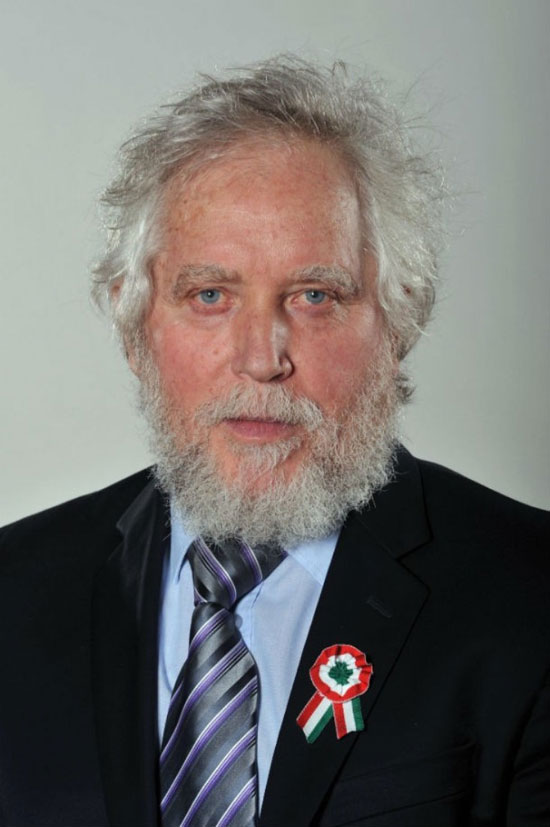Awarded the 'Nobel Prize' of Mathematics in 2012
The Norwegian Academy of Sciences awarded the Abel Prize (equivalent to the Nobel Prize in Mathematics) in 2012 to Hungarian mathematician Endre Szemeredi, according to the announcement of VHLKH Norway on March 21, 2012.
The chairman of the Norwegian Academy of Sciences, Niels Christian Stencet, explained to journalists that the committee's decision to award the prize was because Szemeredi 'created a network in discrete mathematics'.

Endre Szemeredi.
Endre Szemeredi was born in 1940 in Budapest. He came to mathematics quite late after leaving the University of Medicine, he went to work as a factory worker and enrolled in Mathematics at Eõtvõs Loránd University in Budapest. After graduating, he went to Russia to study and defend his doctoral thesis at Moscow General University named Lomonosov (MGU) in 1970 with the guidance of Professor Israel Gelfand. Szemeredi is currently working at the Alfréd Rényi Mathematical Institute, belonging to Hungarian VHLKH, and a computer science professor at Rutgers University in New Jersey (USA).
He is highly regarded by the international academic circle, being 'a person with extraordinary mathematical abilities' and his influence on many different mathematical disciplines is enormous. He opened many new directions for narrow specializations of Mathematics and laid the foundation for a number of future Maths.
In 2001 the Norwegian government announced the 200th anniversary of the Norwegian mathematician Niels Henrik Abel (1802) marking the birth of a new prize for mathematicians, named Abel. The purpose of this prize is to fill the absence of the Nobel Prize in mathematics, although the Fields medal is sometimes considered equivalent. The Abel prize is accompanied by a prize of 6 million Norwegian kroner, equivalent to 740,000 euros or 1,000,000 USD.
- Nobel Prize: Glory, bitter and things ...
- 3 awards 'Asian Nobel' 2011
- A scientist who has been awarded the Nobel Prize for Medicine has died
- Nobel Economics 2013 can go to Americans
- Research on the image of Ig Nobel prize winner 2018
- Nobel history and things to know
- Video: What did the first Nobel Prize winner invent?
- The 2016 Nobel Peace Prize is awarded to people who end their bloodbath in Colombia
- Why do Americans dominate the Nobel Prize in Economics?
- Why is Relativism not awarded the Nobel Prize?
- The process of awarding Nobel prizes is gradually outdated?
- Japanese-English writer Kazuo Ishiguro won the 2017 Nobel Prize for Literature
 Vietnam 5th Asian champion on fuel-efficient vehicles
Vietnam 5th Asian champion on fuel-efficient vehicles We can read all NASA studies completely free of charge
We can read all NASA studies completely free of charge Singer and songwriter Bob Dylan won the 2016 Nobel Prize for Literature
Singer and songwriter Bob Dylan won the 2016 Nobel Prize for Literature Scientific revolution in Asia
Scientific revolution in Asia